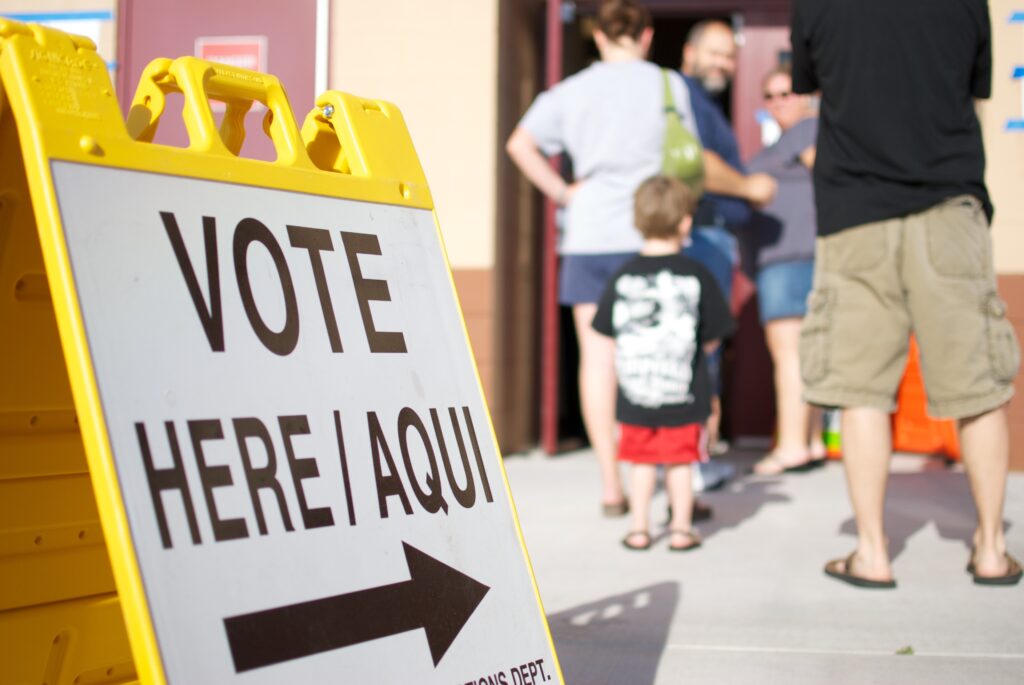In Win for Voters, Arizona’s GOP-Backed Voter Suppression Laws Will Stay Blocked

Two restrictive GOP-backed Arizona voting laws will remain blocked after a vote by a federal appeals court Monday.
A majority of the judges on the 9th Circuit Court of Appeals voted against rehearing the case, in which a panel ruled in February that the two laws were “unlawful measures of voter suppression.”
In 2022, Arizona passed a pair of voter suppression statutes that then-Gov. Doug Ducey (R) signed into law.
House Bill 2492 would require voters to provide documentary proof of citizenship (DPOC) when voting for president or by mail — even if they registered using the federal registration form, which does not require DPOC. Voters who registered before the law was enacted had to retroactively show DPOC to cast a ballot.
House Bill 2243 would require county election officials to cancel someone’s registration if they have “reason to believe” the person isn’t a U.S. citizen.
In Arizona, voters may register using either the federal form or a state application, which requires DPOC. Before HB 2492, voters who used the federal form without showing DPOC were allowed to vote for federal offices, but not in state or local elections.
Despite GOP claims, noncitizen voting is exceedingly rare. A database of noncitizen voting and other voting fraud incidents maintained by the Heritage Foundation shows less than 100 cases since 1982.
The laws were quickly challenged in court by Arizona voters, pro-voting groups and the Department of Justice during President Joe Biden’s administration, and the cases were consolidated into one lawsuit. A federal district court enjoined enforcement of HB 2243 during the 2022 midterms, and then struck down key provisions of both laws in 2023 and 2024 decisions. Those rulings kept Arizona officials from demanding proof of citizenship in federal elections.
The Republican National Committee joined state GOP lawmakers to appeal the lower court decision to the 9th Circuit. The 9th Circuit denied the Republicans’ petition to stay the lower court’s ruling during the 2024 elections in August, but the U.S. Supreme Court soon after granted a partial pause, effectively requiring newly registered voters only — not previously registered voters — to provide DPOC.
Republicans can now appeal the February decision to the Supreme Court. State Senate President Warren Petersen (R) did not immediately respond to a request for comment, but he did promise to appeal to the Supreme Court after the 9th Circuit handed down its decision in February.
Petersen led the Arizona Senate’s judiciary committee when the chamber launched its shambolic audit of 2.1 million ballots cast in Maricopa County in 2020. The firm hired by the Senate, Cyber Ninjas, later released a report that confirmed the ballot count while making a number of incendiary claims that were subsequently disproven.
Under the terms of the partial stay, the provision of the Arizona law requiring new registrants to show DPOC will remain in place until the court either takes the case and issues a judgment, or declines to take the case.